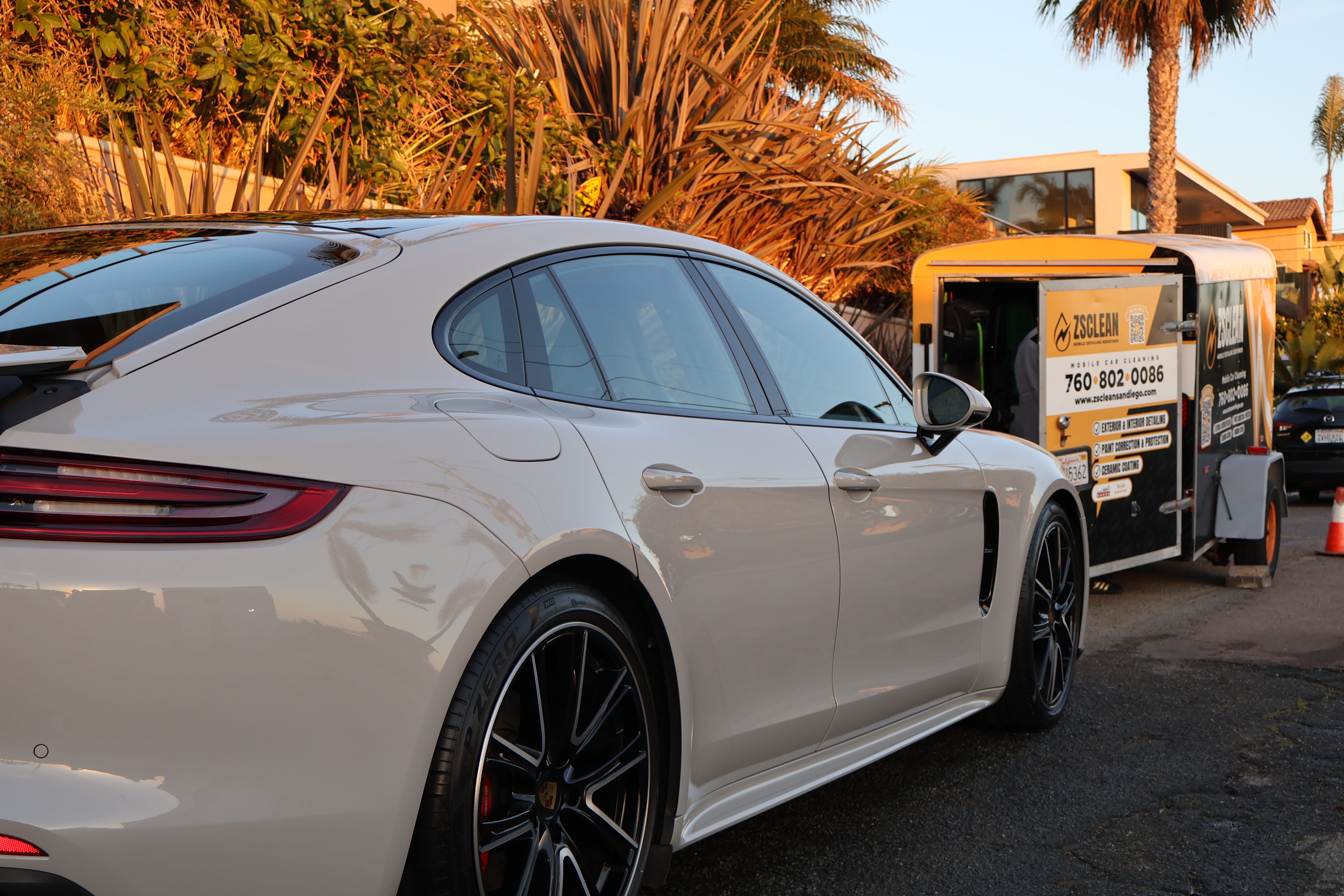Extend your car's life with a reliable car care routine in San Diego. Discover tips to protect your vehicle's resale value through regular maintenance and detailing.
Your car looks amazing after a detail—now what? Here’s a simple, realistic plan to keep it clean, protected, and looking great between professional details.

So, you just got your car detailed—it’s spotless, the paint is smooth, the interior feels fresh. It almost hurts to think about getting it dirty again.
The truth? You can’t keep it perfect forever. But you can keep it looking close to that “just detailed” condition for weeks or even months if you follow a simple upkeep routine. The trick is realistic habits—not a 3-hour wash every weekend, but a system you can actually stick to.
Here’s the plan I recommend to my own clients after we finish their detail.
If your car was waxed, sealed, or ceramic coated, give the protection time to cure.
You don’t need to break out every product in your garage—just a quick, safe wash will keep dirt from bonding to the surface.
If you can’t wash at home, choose a hand wash location that uses microfiber and safe techniques (not a spinning brush tunnel).
If you have leather, wipe it down with a gentle leather cleaner and condition it every 2–3 months to avoid cracking.
If your car gets dusty mid-week, you can use a quick detailer spray and microfiber to lightly remove it—just avoid using these on heavily dirty paint to prevent scratching.
For interiors, keep a small microfiber towel in the door pocket to wipe fingerprints and dust before it builds up.
The easiest way to keep your car clean longer is to avoid:
If possible, use covered parking or a quality car cover when the car sits for long periods.
If you’re not a DIY type, schedule a maintenance detail every 2–4 months and let your detailer refresh it for you.
Get car care tips and updates you’ll actually use.

Extend your car's life with a reliable car care routine in San Diego. Discover tips to protect your vehicle's resale value through regular maintenance and detailing.

Discover the ultimate guide to mobile car detailing in Escondido for 2026, learn about pricing, included services, and choosing the best detailer for your needs.